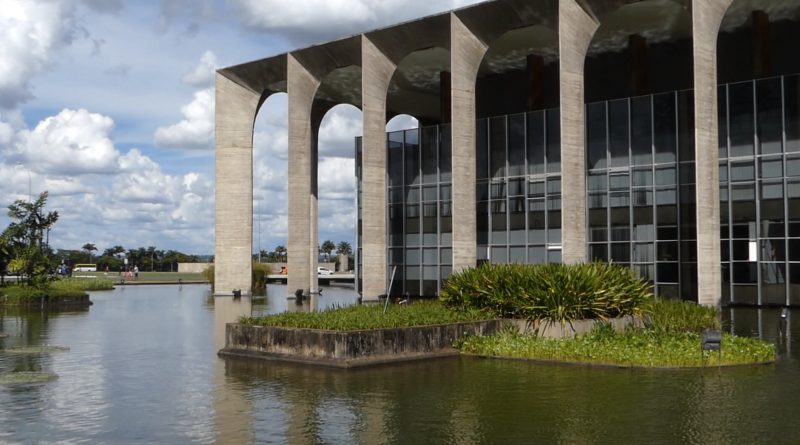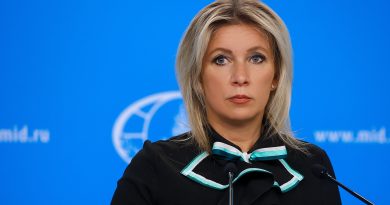Brazil chooses Brazil
by Marcelo Zero
On June 21st, a delegation from the European Parliamentary Committee on Foreign Relations visited the Brazilian Congressional Committee on Foreign Relations and National Defense.
During a long interaction that covered diverse subjects, an Estonian parliamentarian from the right-wing Identity and Democracy group stated that, regarding the conflict in Ukraine and geopolitics in general, Brazil would have to decide whether to side with the “democracies” , meaning Europe, the USA and its allies, or the “dictatorships”, meaning Russia, China and other countries. There would be no middle ground possible, he said.
Another European parliamentarian said that China “enslaves” other countries through loans and debt. A Spanish lawmaker called the Ukraine conflict an “imperialist war” that is unilaterally promoted by Russia, which he says wants to impose its autocratic rule across Europe.
This simplistic and Manichaean view of the conflict in Ukraine and the new world order seems to pervade much of the European political spectrum. Even part of the European left seems to have adhered to this atlanticist and paranoid vision of the new world geopolitical and geoeconomic configuration, which has led to the new cold war which, as the Estonian parliamentarian said, pits the “good”, western democracies, against the “evil”, “autocracies” like China, Russia, etc.
The fact is that, contrary to what the Estonian parliamentarian said, Brazil and other countries of the so-called Global South do not have to choose between any of the sides defined in this new diplomatic Manichaeism.
Between the USA and Europe on one hand and China and Russia on the other, Brazil chooses Brazil – a country with its own, independent interests, that wants to have good relations with all nations, that seeks to contribute to a world order that is multipolar, multilateral, symmetrical and capable of providing solutions to the planet’s serious problems such as global warming, hunger, poverty, inequality and wars.
Most emerging and developing countries in the World agree with this Brazilian position and have no historical reasons to be hostile, a priori, to China, Russia and other countries currently demonized by the new western crusade.
It should not be forgotten that countries in Latin America, Africa and other regions of the Global South weren’t colonized by Russia or China. They were colonized, essentially, by Europe. In many cases, this has left scars that are difficult to forget.
In Africa, a continent where most countries got rid of colonialism relatively recently, often through wars against European colonizers, there is a certain level of distrust towards Europe, but there is no suspicion towards Russia or China. China is currently investing 2.5 times more in Africa than the entire West combined. This is benefiting many economies on that continent. Why, then, should Africa be hostile to China? Or Latin America for that matter?
Regarding “debt slavery” most nations most negative experiences in that area are the result of debts incurred with the West. The IMF, for example, is an institution controlled by the US and Europe, which only disburses loans in exchange for draconian conditionality agreements, imposing orthodox and unpopular economic policies on its creditors.
Before the PT governments, Brazil was also a victim of these debts. The “lost decades” caused by the external debt crises are still fresh in the collective memory of Latin America. China and Russia have never constrained us in this way.
Furthermore Russia and China haven’t intervened in the internal affairs of Latin American countries. There is a historical distrust of the US in this area, with plenty of motives.
A study published in the Harvard Review of Latin America in 2005 shows that between 1898 and 1994, the US caused regime change in Latin America 41 times. This shows a coup or military invasion averaging every 28 months. It’s important to note that this Harvard study doesn’t even include recent interventions like those in Honduras (2009), Paraguay (2012) and Brazil (2016).
The Biden administration’s recent support for Brazilian democracy, while very welcome, does not invalidate the fact that Latin America has no reason to be suspicious of Russia or China in this field.
By using Manichaean and puerile arguments to pressure Brazil and other countries around the world to align themselves with one of the poles of this new Cold War, the US and Europe are making a serious error of judgment which could produce contrary effects to those intended. Indeed, this kind of pressure could be interpreted as an arrogant and neocolonial attitude.
It would be better to invest in frank cooperation without geopolitical, moralistic and Manichean conditionalities. This kind of pressure can pose obstacles to the construction of a peaceful, sustainable, multipolar and symmetrical world order. They can also create obstacles to a more democratic and egalitarian world.
It would be better to open their coffers and pay their historical debts, such as those related to the environment. Lula made this clear in Paris last week during negotiations for a Mercosur-EU Agreement. Strategic partners must not be threatened. Nor should they be subjected to rules from other countries that can’t even comply with them themselves. Furthermore, strategic partners must not be pressured to stand against their own best interests and against the interests of most of the world. False friends are those who impose allegiance.
The new political-ideological crusade that the US and Europe seem to want to impose on the world is of no interest to the planet. Nor are the protectionist positions and hegemonic pretensions associated with it.
Like Brazil, most of the World’s countries want peace and food. They want the opportunity to grow, prosper and provide the same living standards as the European nations. The old colonies want to be treated as equals of the old colonizers. They want respect. They will not submit to diplomatic bullying, wherever it comes from.
Brazil chooses Brazil. Brazil chooses the World.
Marcelo Zero is a sociologist, international relations specialist and advisor to the Brazilian Workers Party leadership in the Senate.
This article was translated by Brian Mier for Kawsachun News



